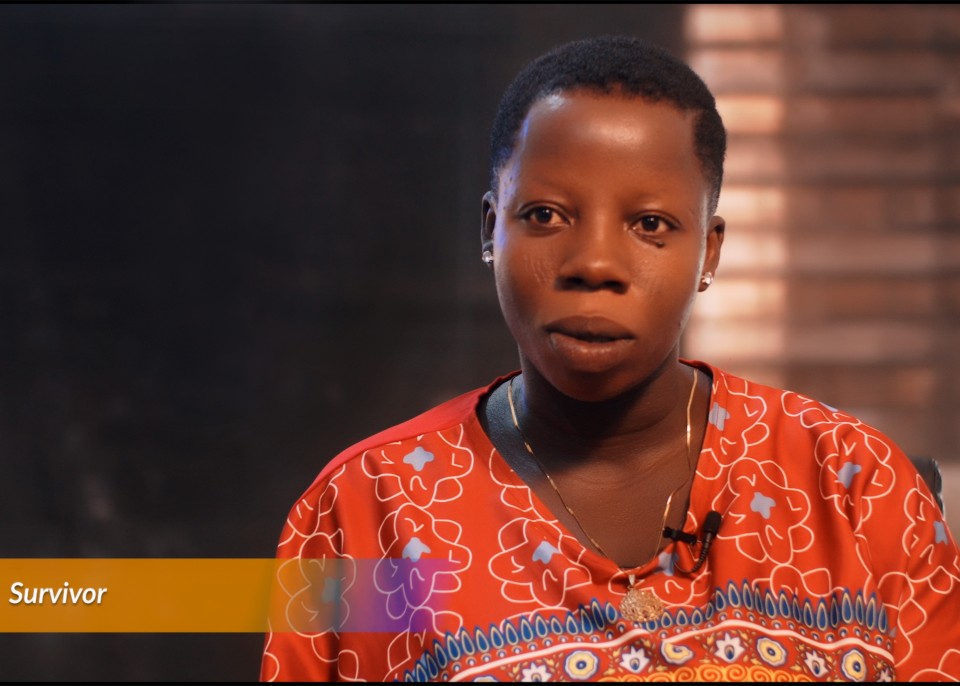I wanted to just go back home’ human trafficking survivor and activist
Fatima is from a poverty-stricken family residing in a small community in Benin, Edo state, Nigeria. When a once in a lifetime chance came for her to work in Italy, she grabbed it with both hands- anything to give her family a better life.Date:
Fatima agreed to embark on the journey to Italy, after she was duped that she would be a salesgirl in a boutique. After getting the necessary permissions from her father, she could not hold in her excitement as her seemingly dark past seemed to finally have a bright future.
The next day, they set out to the recruiter’s house where she discovered there were others like her-both male and female. At dawn the next day, he made them take an oath (unknown to them that he was a juju priest) promising to keep everything secret and breaking this oath would result to death. Sacred for their lives, they kept their mouths sealed. A few hours later, everything was set and when they boarded that bus out of Benin, they were already sold.
On arrival to Niger where they would board a plane, they were informed that they were heading to Libya, and not Italy as initially promised. They thought of going back but had no means nor idea of their whereabouts.

Fatima narrates her ordeal. Photo: Cleen Foundation
They were threatened and deprived of food for the next 2 weeks and relocated every few days.
During transportation, they were overpacked in the car, where some lost their lives. They thought they had seen hardship, but the real hardship began when they journeyed through the desert, not many made it out alive.
“Some of us drank the bath water of dead bodies to stay alive. Sometimes, the girls would urinate in a bottle and give the guys to drink. The sun in the desert was unbearable. Many of us died of thirst, others were buried by the sandstorm while asleep. Just very few of us made it to Libya’, recounts Fatima.
On arrival in Libya, they were shocked to discover that the initial recruiter had not paid the pending ‘dues’. To clear this debt some were tortured and forced to call their families to pay up.
Soon enough, Fatima realized that she was not going to Italy. She was sold several times. People bargained over her like a cheap piece of cloth.
With nowhere to go and limited choices, she was peddled as a sex worker. She had debts that were twice the initial cost of more than $I,200. She was happy to regain her freedom after paying her debt, but to survive, she had to continue with the sex work. After saving some money she thought to move further to Italy in search of greener pastures.
Eventually, she was aboard an overcrowded boat which eventually capsized at sea and the scars on her body continue to tell the tale of survival.
One day, their residence was raided by policemen, and she was taken to the deportation camp where she interacted with many Nigerian and African ladies.
She recalls life in the deportation camp ‘… I turned to God and offered a sincere prayer…I wanted to go home, and I asked him to help me’.
She was in that deportation camp for almost 2 weeks and as luck would have it, her papers were processed, and she boarded the next available plane back home to Nigeria.
“I tell my friends who wish to travel abroad like this, to rethink their decision, but they don’t listen, some embarked on the journey and didn’t survive… it is good to travel but travel legally, that’s the only way you can enjoy your adventure.”
Now, Fatima is still trying to catch up with her life, though she is married and recently gave birth to a baby boy. On her return, she was able to learn a skill in tailoring and shoe making but has only owns one sewing machine. She intends to strengthen her tailoring skills once she is strong enough to begin. Life in general is still a struggle for Fatima.
UN Women in Nigeria is working with with Cleen Foundation, NAPTIP and other stakeholders to ensure that girls and young women like Fatima are protected. The project “Preventing forced migration and trafficking of women and girls in Nigeria: Build resilience, promote sustainable development” aims to enable a gender-sensitive policy environment that addresses forced migration and trafficking and increase gender-sensitive information and awareness-raising in source migration trafficking sites. The project also seeks to support and strengthen the gender-responsiveness of interventions by the National Agency for the Prohibition of Trafficking in Persons (NAPTIP) and other relevant government agencies.